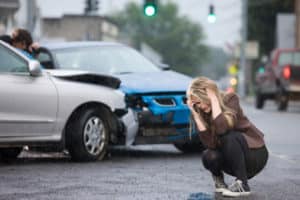NJ Governor Signs DWI Bill into Law: What it Means for DWI Vehicular Homicide Charges

The aforementioned legislation, Bill A-3686, is also called “Ralph and David’s Law” in honor of two victims who inspired the bill after their tragic deaths caused by drunk drivers. “Ralph” refers to 49-year-old Ralph Politi Jr. of East Hanover, who was killed in 2012 on Ridgedale Avenue. The driver, Vanessa Brown, was driving under the influence when she stuck and killed Politi while he was standing next to his truck. Brown, of Parsippany, was convicted on charges for second offense DWI (her first had occurred several years earlier in Tinton Falls), reckless driving, careless driving, and failure to maintain lane, but was acquitted on charges for aggravated manslaughter and vehicular homicide. In a similar case, 13-year-old Sussex County resident David Heim was killed in 2004 by a drunk driver who was only sentenced to 30 days in jail for a first offense DWI.
Governor Christie signed the bill on Friday, July 21st, so what does it mean for individuals charged with driving under the influence when it causes death?
DWI and Strict Liability Vehicular Homicide Charges in New Jersey
Previously in New Jersey, if a person caused someone else’s death driving while intoxicated, they could be charged with Vehicular Homicide under New Jersey’s Death by Auto Statute (N.J.S.A. 2C:11-5). According to this section of the NJ Criminal Code, a person is presumed to be driving recklessly when driving under the influence and when this act causes the death of another, the person can be charged with a second degree crime. Second degree crimes in New Jersey entail a presumption of incarceration, which means that even first-time offenders are required to serve prison time. The sentencing range for a second degree crime in New Jersey is between 5 and 10 years. In addition, a conviction for vehicular homicide requires a mandatory minimum period of parole ineligibility, set at or between one-third and one-half of the sentence imposed, or 3 years, whichever is greater. Additional penalties for Death by Auto include a license suspension for a minimum of 5 years and up to lifelong supension, as well as a $150,000 fine.
The issue that prosecutors have run into in the past is that in some cases, the elements of the offense do not rise to the level of second degree Death by Auto, which allows the defendant to be convicted solely for the drunk driving offense and to face no other penalties in connection with the death caused by their reckless driving/DWI. The new law creates a new offense known as “strict liability vehicular homicide,” which allows the State to prosecute drivers who cause a person’s death while driving under the influence of drugs or alcohol. Strict liability vehicular homicide is classified as a third degree crime; however it entails an additional nuance. Although typical third degree crimes under NJ law entail a presumption of non-incarceration for first-time offenders, this offense will not. Essentially, this creates a minimum 3-year sentence for anyone convicted of strict liability vehicular homicide in New Jersey.
Senator Stephen Oroho said this about the new legislation: “Harsher punishments can act as a deterrent and ensure that reckless drunk drivers who kill receive a punishment that reflects the magnitude of their crime.” Overall, this means that defendants charged with DWI and strict liability vehicular homicide moving forward will need to have the strict liability charges outright dismissed in order to avoid a jail sentence.
For additional information pertaining to this issues, access the following resource: Christie signs law honoring DWI victim Ralph Politi Jr.

